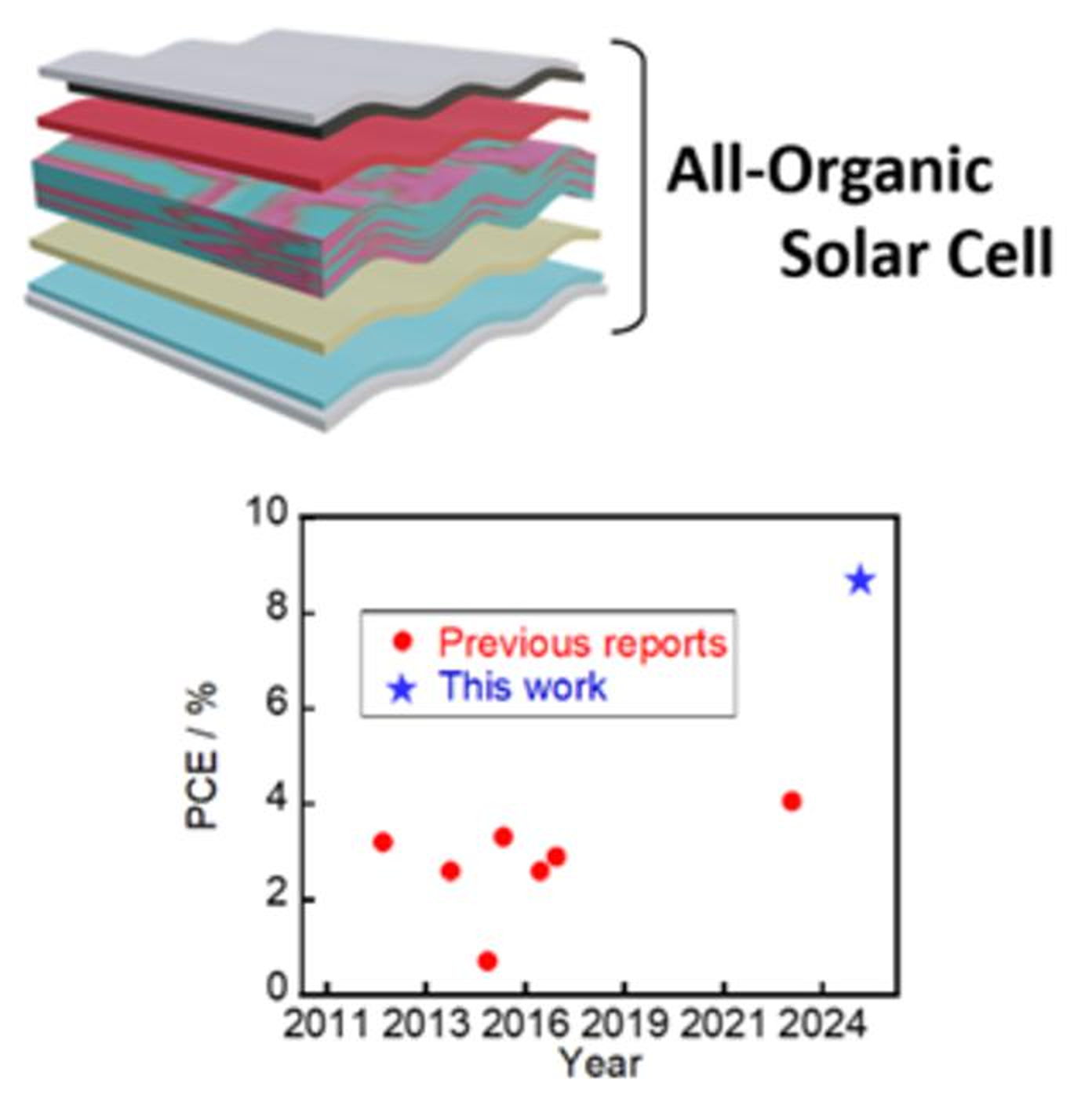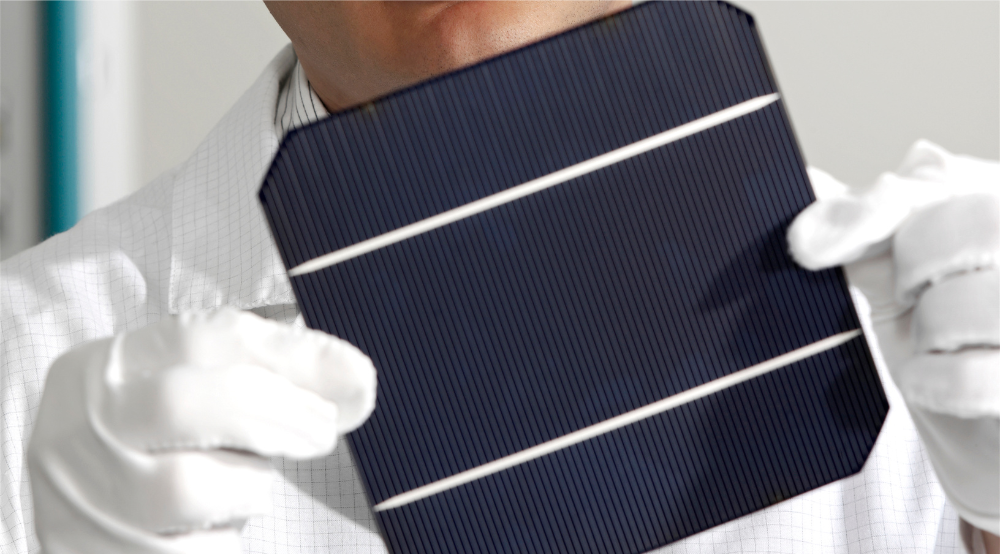A team led by scientists from Kanazawa University in Japan haa developed an all-organic solar cell with a power conversion efficiency of 8.7%
The result more than doubles the power conversion efficiency of previously fabricated all-organic solar cells, which reached around 4%.
In the research paper “Unlocking High-Performance in All-Organic Solar Cells by the Development of Organic Electrodes with No Acid and High-Temperature Treatment and the Effective Preparation Thereof on Organic Multilayer Films,” available in the journal Advanced Functional Materials, the team explains they achieved the result by addressing two challenges in the development of such cells.
First, they developed a transparent electrode based on conductive polymer PEDOT:PSS that was fabricated at 80 degrees without using acids or bases. It demonstrated sufficient conductivity, with a sheet resistance of less than 70 Ω/sq, for film-type solar cells.
The paper explains that the previous preparation of high-conductivity organic materials had required high-temperature annealing, of over 150 degrees, which can damage organic substrate films and organic semiconducting layers, leading to a reduction in the performance of the organic solar cell.
The team also developed a lamination method of carbon nanotube electrodes, which they say addressed the difficulty of stacking multiple layers in the film-type solar cell device without damaging the underlying layers.
The lamination technique involved forming electrodes separately on the barrier films of solar cells and then attaching them to the device, avoiding damage to the bottom organic films during electrode fabrication.
In the research paper, the scientists explain that their all-organic solar cell does not contain expensive transparent electrodes or vapor-deposited electrodes, and add that the cell can be fabricated entirely using solution processes. They say this indicates the relative ease of scaling up to create larger modules.
The researchers envisage all-organic solar cells to hold great promise for applications in environmentally sensitive areas, such as farmland and wearable devices. The team is now aiming to further enhance the performance of their fabricated cell by improving the conductivity of the organic electrodes.
The Kanazawa University team collaborated with scientists from Kyoto-headquartered Reiko Co., Ltd and Queen's University in Canada, on the research project.










